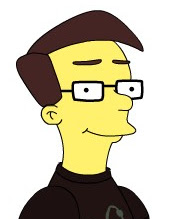I've become rather enamored of the work of David Chalmers, a professor in philosophy at Australian National University. Chalmers has a blog (Fragments of Consciousness, also linked in the sidebar) and has also created an online repository of papers and links to materials on the web dealing with consciousness studies.
Chalmers has written a good deal about the so-called "hard" problem of consciousness. That is, the problem that phenomenal consciousness represents to accounts of the way the world works. Here is Chalmer's description of the problem from one of his papers, Consciousness and its Place in Nature:
The hard problem of consciousness is the problem of experience. Humans beings have subjective experience: there is something it is like to be them. We can say that a being is conscious in this sense — or is phenomenally conscious, as it is sometimes put — when there is something it is like to be that being. A mental state is conscious when there is something it is like to be in that state. Conscious states include states of perceptual experience, bodily sensation, mental imagery, emotional experience, occurrent thought, and more. There is something it is like to see a vivid green, to feel a sharp pain, to visualize the Eiffel tower, to feel a deep regret, and to think that one is late. Each of these states has a phenomenal character, with phenomenal properties (or qualia) characterizing what it is like to be in the state.Historically, attempts to answer this problem have been myriad but the central issue has for some time revolved around whether or not the mind is separate from or composed by the brain. At the extremes of the philosophical spectrum are:
There is no question that experience is closely associated with physical processes in systems such as brains. It seems that physical processes give rise to experience, at least in the sense that producing a physical system (such as a brain) with the right physical properties inevitably yields corresponding states of experience. But how and why do physical processes give rise to experience? Why do not these processes take place "in the dark," without any accompanying states of experience? This is the central mystery of consciousness.
- Cartesian dualism - the mind is completely independent of the brain; a "ghost in the machine".
- Reductive physicalism - the mind is coterminous with the physical brain. All mental states are in isomorphic correspondence to (and are caused by) brain states.
I recognize that this isn't by itself a particularly strong argument on which to base a rejection of physicalism. There are other reasons, but this is enough for my purposes, here. Chalmers goes into much greater depth regarding numerous attempts to deal with the "hard problem" in the previously cited paper and it's well worth reading as an excellent introduction to this topic in the PoM. For now, I want to note principally that the extremes of which I take note can also be categorized (broadly) as "supernatural" vs. "natural". The Cartesian view is inherent in the popular (albeit likely unbiblical) conception of the "soul" as a "spiritual" entity that inhabits the body whereas the physicalist position amounts to a denial of the soul and the wholly natural composition of the mind. Of course there are other points on the continuum between these extremes that can also be so labeled, but these two outline the contours of the PoM landscape.
So, the central issue in PoM can also be seen as a struggle between two different ways of looking at the world: supernatural vs. natural. In the next post, I want to examine the error I believe is inherent in this dichotomy and provide some reasons why I believe the true answer lies somewhere in between.






No comments:
Post a Comment